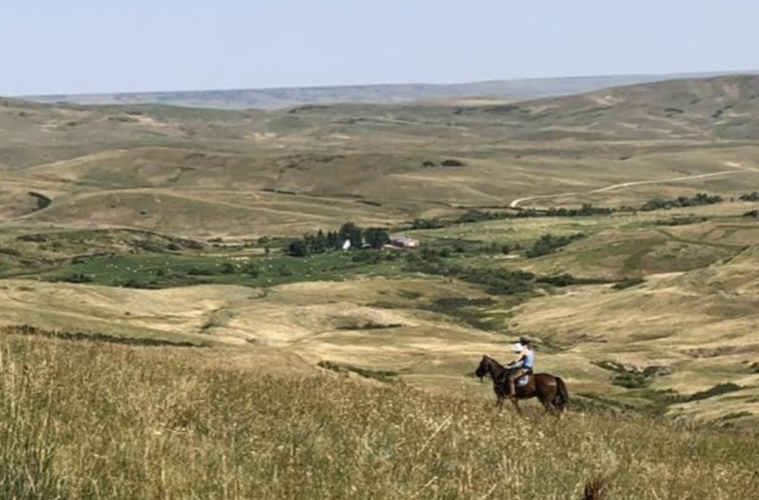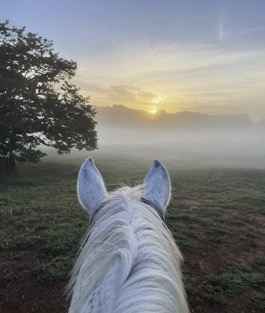Give “Control” to Get Control
It’s no secret that I like feeling like I’m in control. While I recognize there’s little I actually can control, I hope that my efforts to set my horses up for success will keep things moving forward in ways that I would expect and hope. For example, I hope my close attention to detail and barn management routine will limit any potential risk of injury or illness.
I’ve noticed this desire for control in my riding as well. I want to know that my conversation with my horse is heard and received – if I ask the horse to move forward to meet a distance, I want to know that my horse will respond.
While creating responsiveness and the ability to ask and receive is critical for safety and useful in performance, striving after constant control can lead to micromanagement and a robotic sense of control… If the conversation between you and your horse becomes more of a monologue (on either side), true partnership and ability to work together for control of the situation is inaccessible.
Finding a give and take in the conversation with your horse can help the partnership grow beyond a sense of control.
I recently experienced this challenge while looking for my next jumper. While I was trying different horses, I rode a variety of types. Of course, it can be challenging to trust a strange horse and test a potential partnership for the first time. As a result, I noticed myself micromanaging one of the horses a bit too much.
As I tried harder and harder to gain more control by condensing her stride and holding her back, the harder she pushed against me… and the less in control I felt! Finally, when I realized I would always lose to a horse in a test of strength, I settled into a conversation with the horse that allowed her to move forward in her natural stride. Almost immediately after I relaxed to work with her instead of against her, I felt the comfort of being able to listen to her needs, receive responses to my aids, and create a soft ride overall. Once we stopped talking over each other in our own monologues, we were able to have a back and forth dialogue.
Sometimes you have to let go of the feeling of control to gain control within the context of a mutual partnership.
Building a conversation with your horse (both on the ground and in the saddle) will establish trust. As you expand on the conversation, both horse and rider will learn more about each other – their likes and dislikes, and responses to certain situations. With that, giving up the need to be “in charge” to allow the horse to have a voice in the conversation will create a situation in which both horse and rider have more control of themselves as individuals, the situation, and the partnership as a whole.


